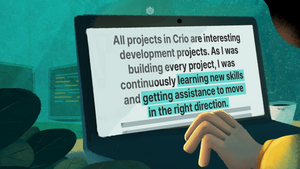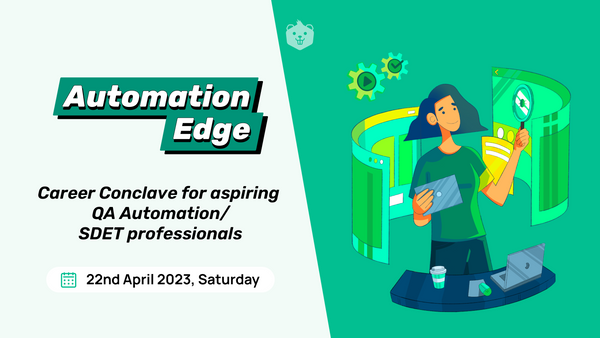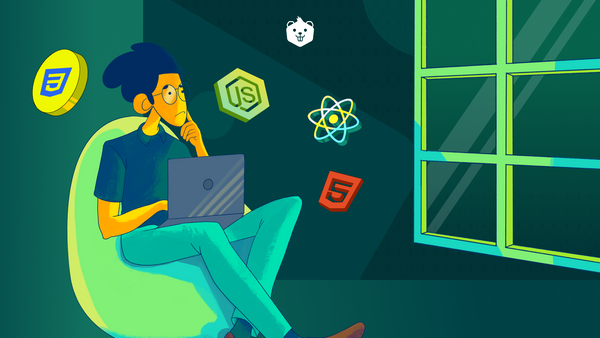Hello, fellow developers! I'm Atharva Telange and I'm excited to share my journey with you as I embarked on a transformational learning experience with Crio's program. In this blog, I'll be discussing my background, motivation, and experience with Crio, as well as the skills I learned, my interview experience, and key takeaways for developers.
My Background
As an Aerospace undergrad with a passion for coding, I was seeking ways to enhance my skills and stay ahead in the ever-evolving tech industry. Also, coding became a supplemental part during my Undergrad days for projects based on data analysis and space flight planning and designing which got me interested in coding. Working on these projects, I realized that there was still much more to learn to reach my full potential as Aristotle famously wrote, "The more you know, the more you realize you don't know."
I am currently working as a Software Engineer at Kristalball. I enjoy creating innovative solutions and solving complex problems using cutting-edge technologies.
My Motivation
My main motivation to be where I am today was the desire to continuously improve and grow as a developer and use coding to make the world a better place. I wanted to enhance my skills, gain new knowledge, and stay updated with the latest industry trends to excel in my career and make a meaningful impact in the tech world.
My Crio Experience
My Crio experience was truly transformative. The program provided me with an immersive and hands-on learning environment, allowing me to apply my skills to real-world projects. The curriculum was well-structured and designed to help me build a strong foundation in software development and enhance my problem-solving abilities.
What Interested Me to Join Crio Program?
What initially attracted me to the Crio program was its practical approach to learning. I was drawn to the idea of working on real-world projects, gaining practical experience, and learning from industry experts. The focus on practical skills and project-based learning was exactly what I was looking for to further my career as a software engineer.
What Did I Do During the Program?
During the Crio program, I worked on multiple projects that covered various aspects of software development such as backend and frontend development, API integration and more.
Skills That I Learned:
The Crio program helped me develop a wide range of skills, including:
- Backend development using a popular framework like Express.
- API integration to interact with external services and databases.
- Version control using Git for seamless collaboration with team members.
- Debugging and troubleshooting techniques for identifying and fixing software issues.
The support and guidance from the Crio team, as well as the motivation to improve my skills and achieve my career goals, helped me stay committed and complete the program. The well-structured curriculum, practical approach to learning, and the opportunity to work on real-world projects kept me motivated throughout the program.
Key Takeaways That Developers Can Expect to Gain Out of Crio's Programs:
Crio's programs offer several key takeaways for developers, including:
- Practical experience: Working on real-world projects helps developers gain hands-on experience and build a strong portfolio.
- Industry-relevant skills: Crio's programs focus on developing skills that are in high demand in the tech industry, helping developers stay competitive in the job market.
- Interview preparation: Crio's programs include interview preparation modules that focus on enhancing developers' interview skills helping them perform well in technical interviews and land their dream jobs.
My Interview Experience:
As part of Crio's program, I had the opportunity to go through multiple rounds of interviews with potential employers. Each round had a specific focus and involved different types of questions. Here's a breakdown of my interview experience:
- Technical Round (Coding + Technical Discussion): The focus of this round was to assess my technical skills, including coding and problem-solving. I was asked questions related to data structures, algorithms, and web development concepts. I approached the answers by carefully analyzing the problem, understanding the requirements, and using my technical knowledge to come up with optimal solutions.
- Founder Round: The focus of this round was to assess my overall personality, communication skills, and my motivation to work with the company. I was asked questions about my career goals, my interests, and my long-term plans. I approached the answers by being genuine and showcasing my enthusiasm for the company and the role I was applying for.
Some Interview Preparation Tips and Resources:
Preparing for interviews can be challenging, but with the right resources and guidance, it becomes more manageable. Here are some tips and resources that helped me during my interview preparation:
- Review the basics: Brush up on your core technical concepts, data structures, algorithms, and other relevant topics. Practice coding problems and system design exercises to strengthen your skills.
- Mock Interviews: Practice mock interviews with peers, mentors, or through online platforms to simulate the interview experience and receive feedback on your performance.
- Research the company: Understand the company's values, culture, products, and services to tailor your answers accordingly and demonstrate your genuine interest in the company.
- Behavioral Questions: Prepare for behavioral questions by reflecting on your past experiences, achievements, challenges, and how you have handled them. Be ready to provide specific examples to showcase your skills.
- Communication Skills: Practice effective communication which plays a crucial role in interviews. Improve your presentation, articulation, and storytelling skills to convey your thoughts clearly and confidently.
Crio's Guidance Help for Interviews:
Crio's guidance played a significant role in my interview preparation and success. The interview preparation modules provided by Crio were comprehensive and covered various aspects of interviews. The mentors at Crio provided valuable feedback on my performance during mock interviews, helped me identify areas of improvement, and provided guidance on how to approach different types of questions. The practical experience gained during the program by working on real-world projects also gave me an edge in my interviews, as I was able to showcase my skills and accomplishments.










